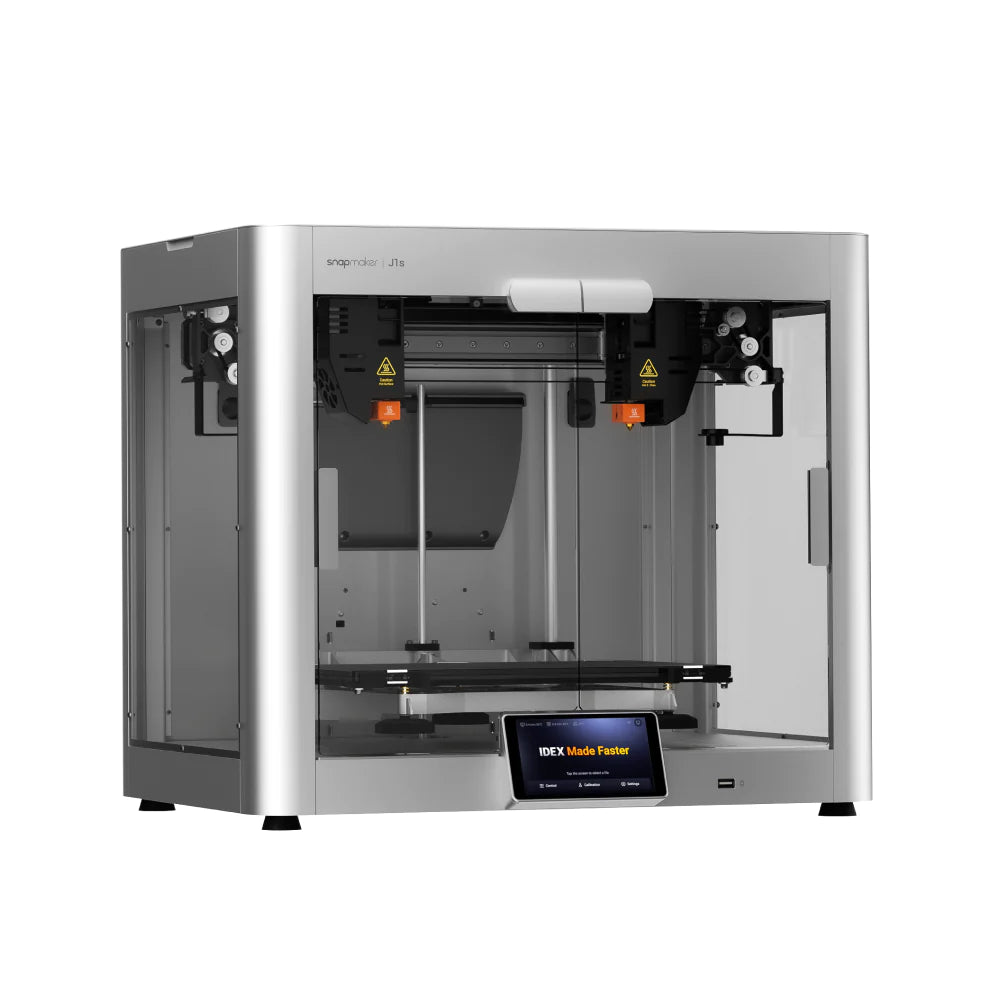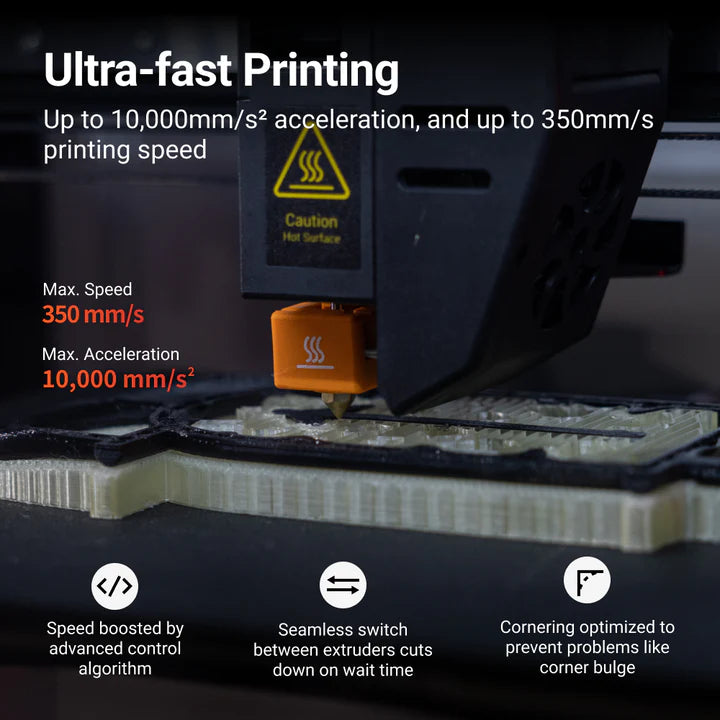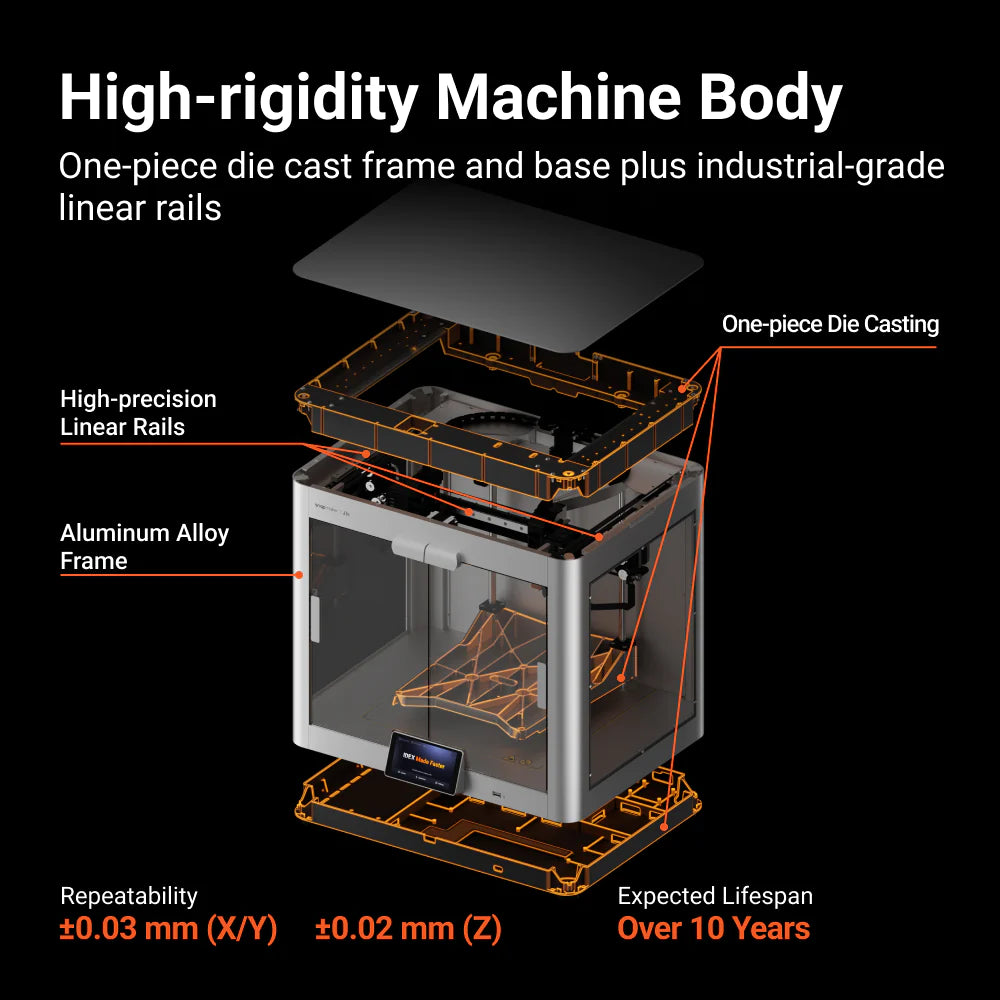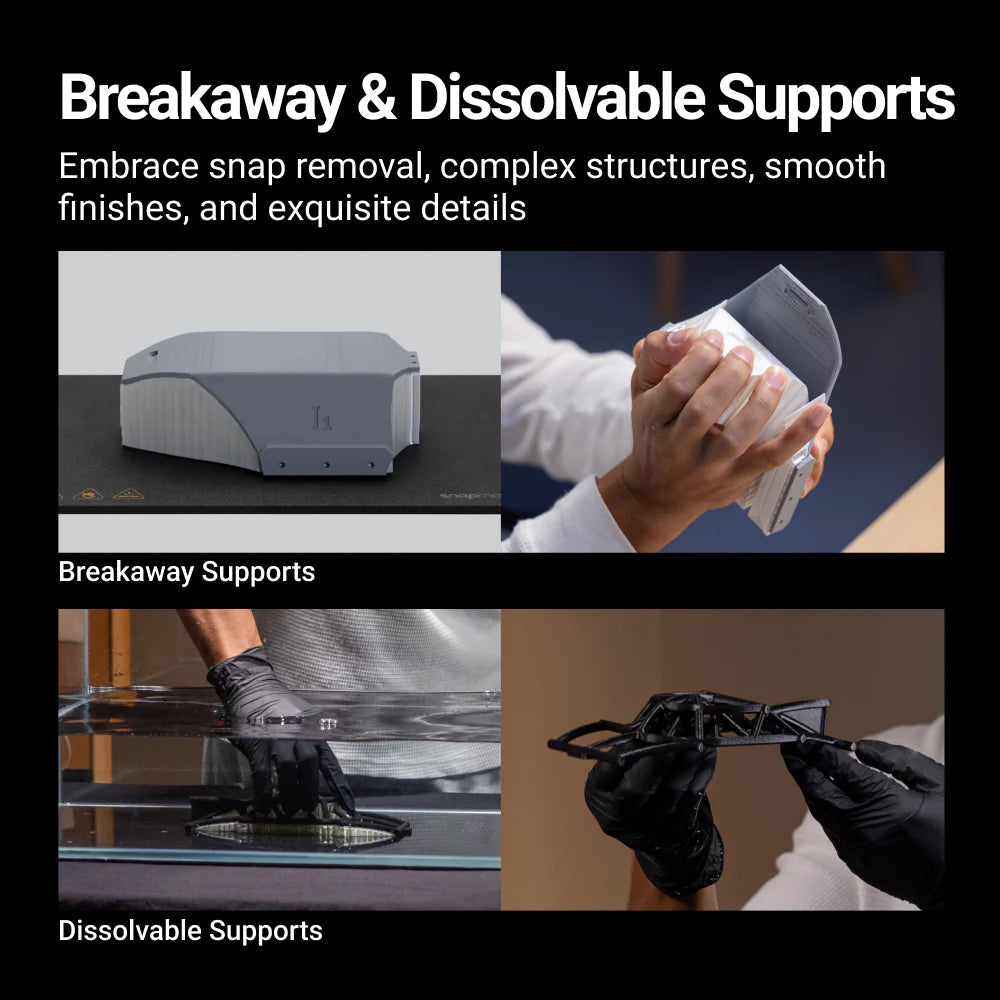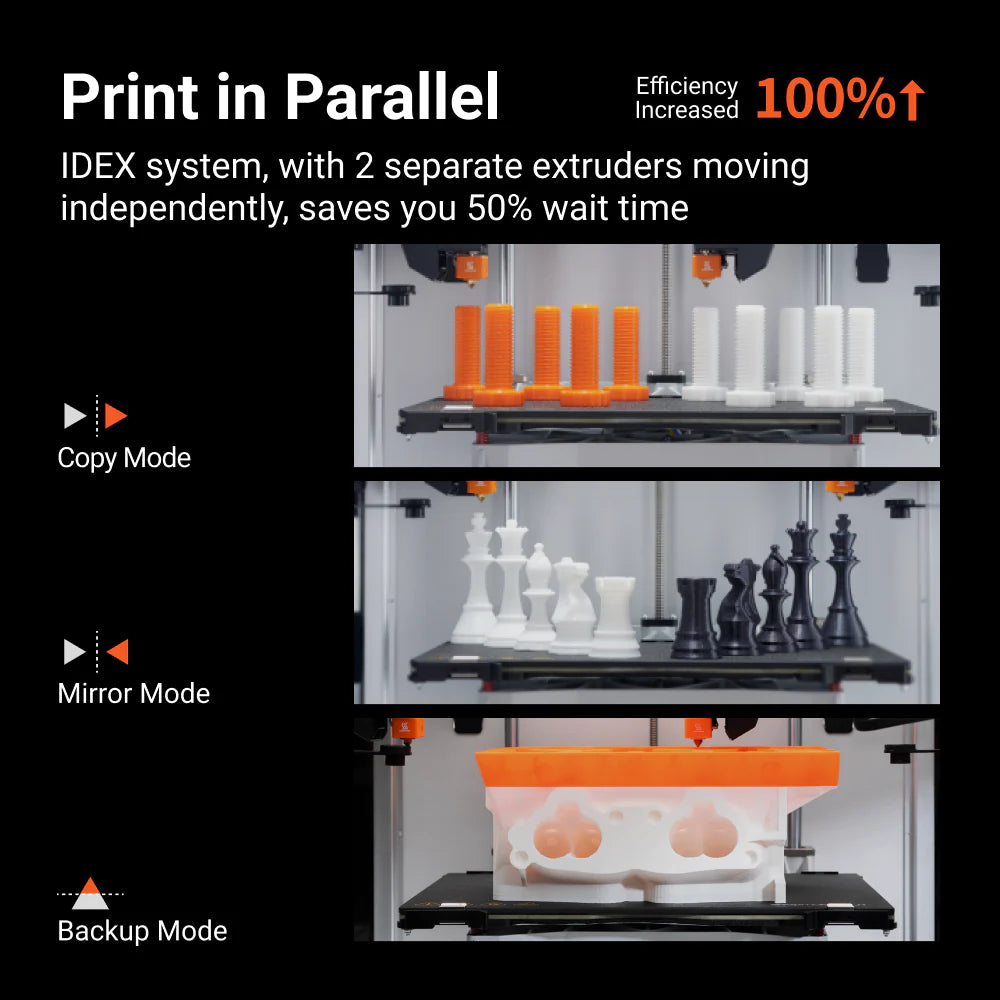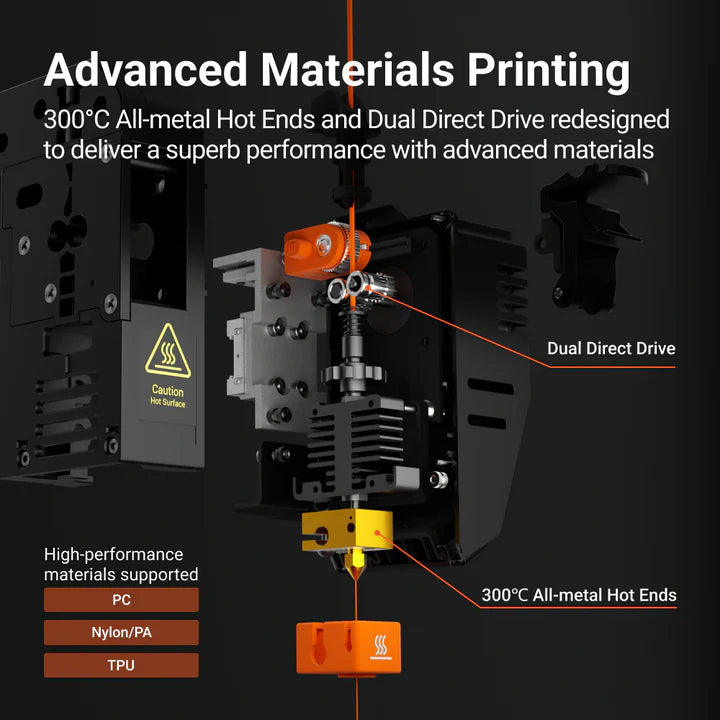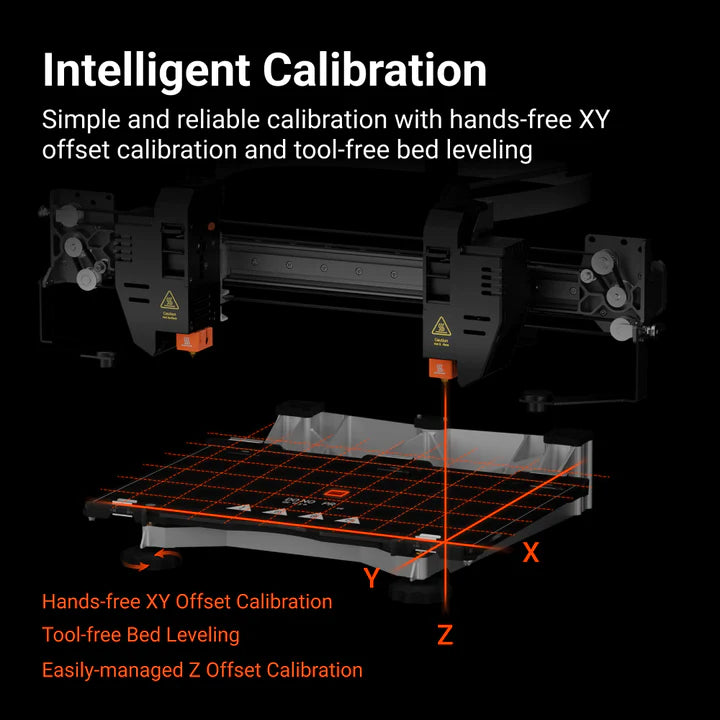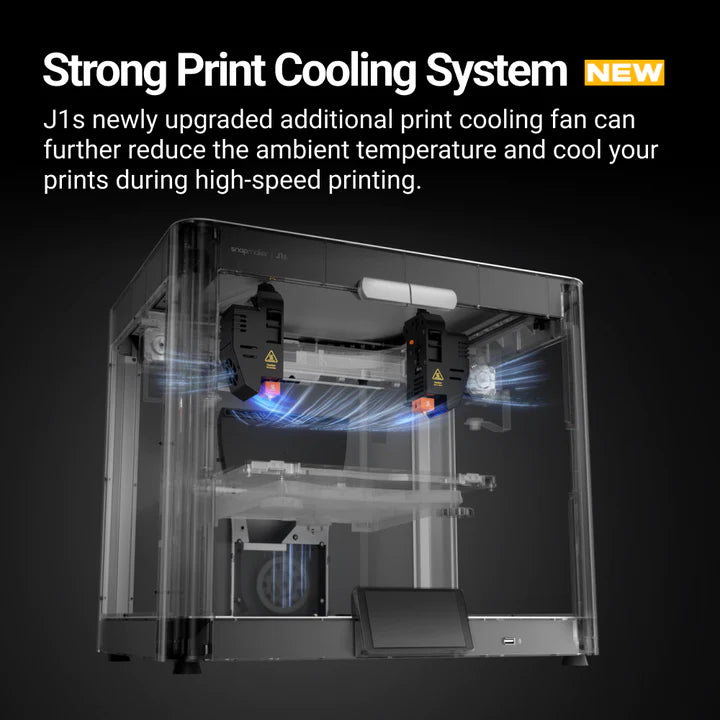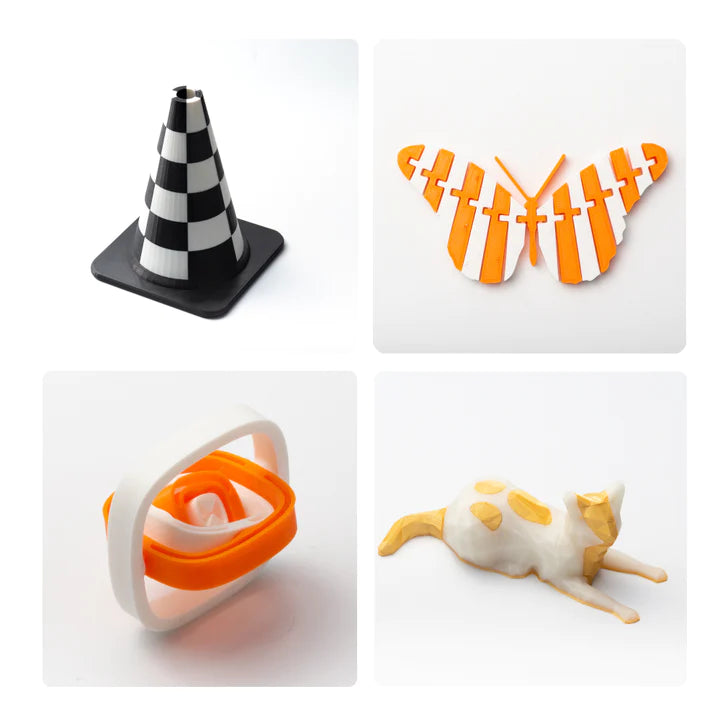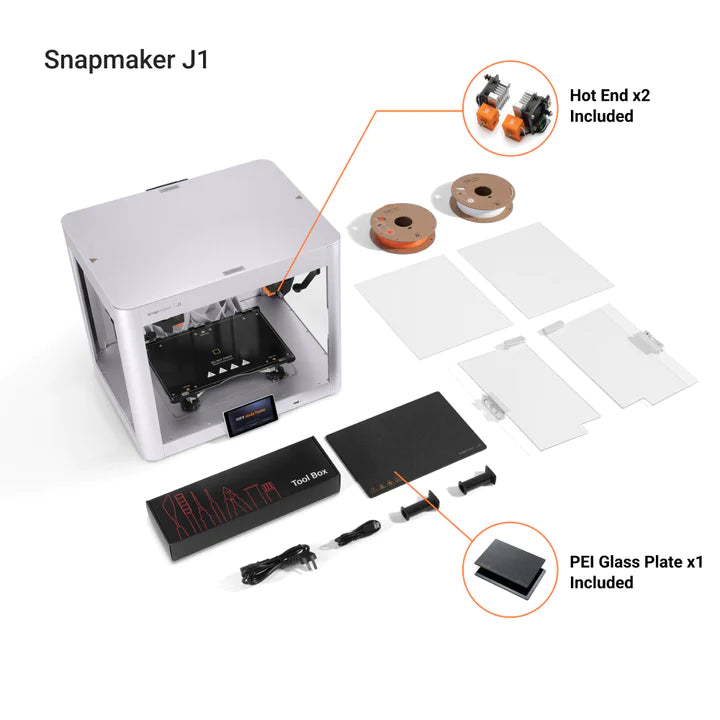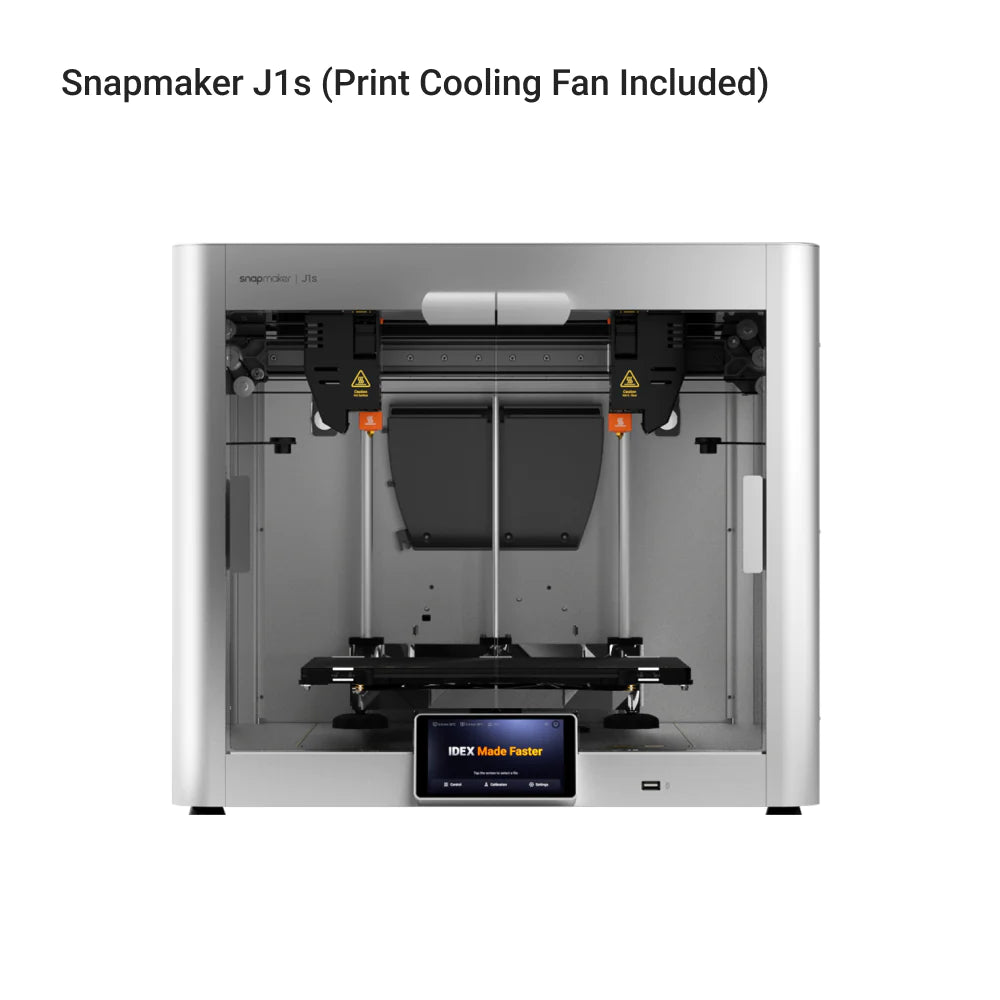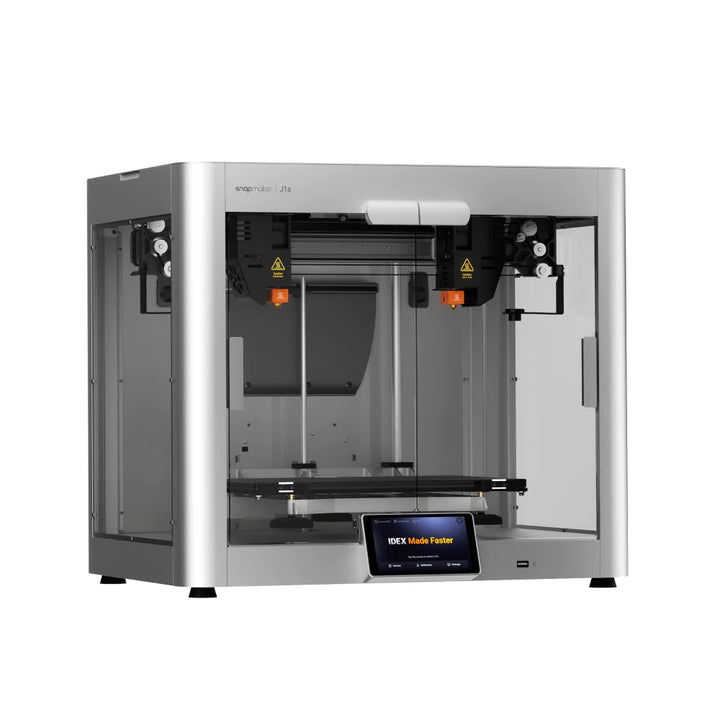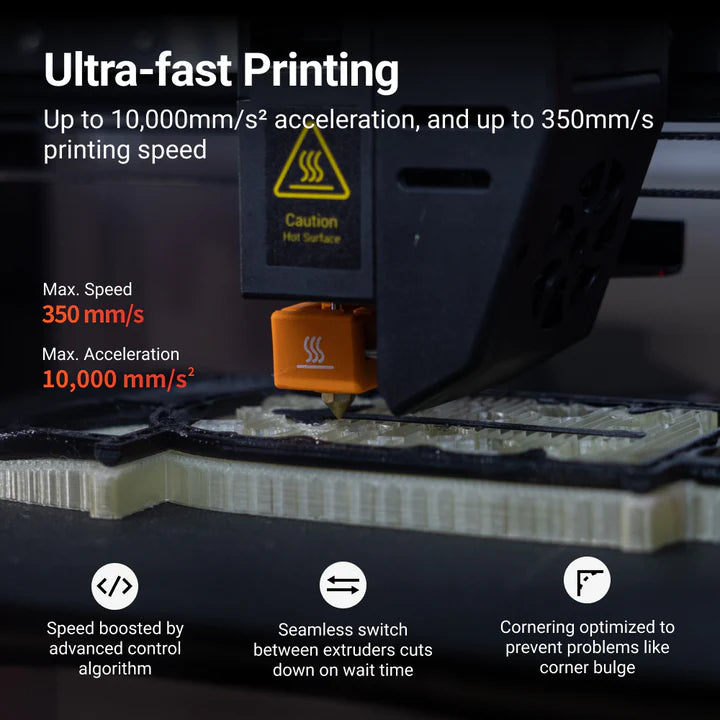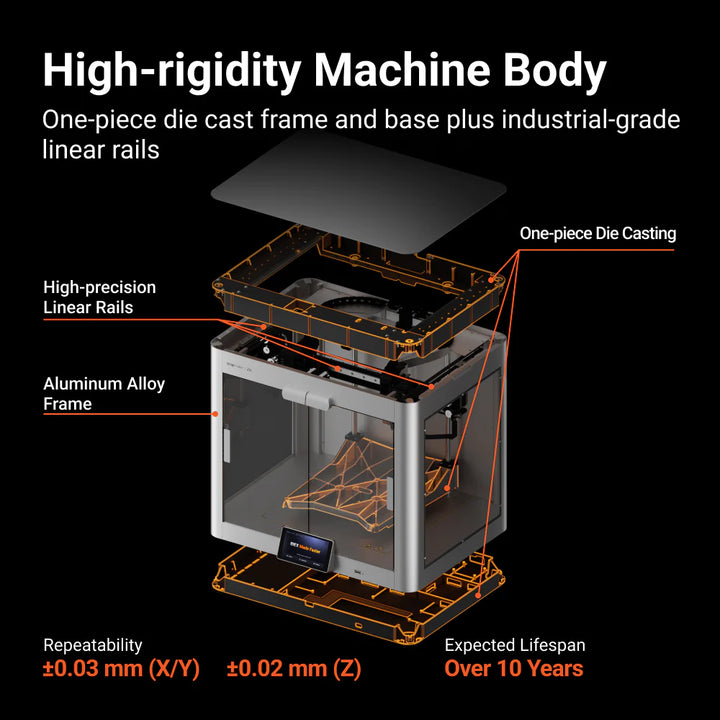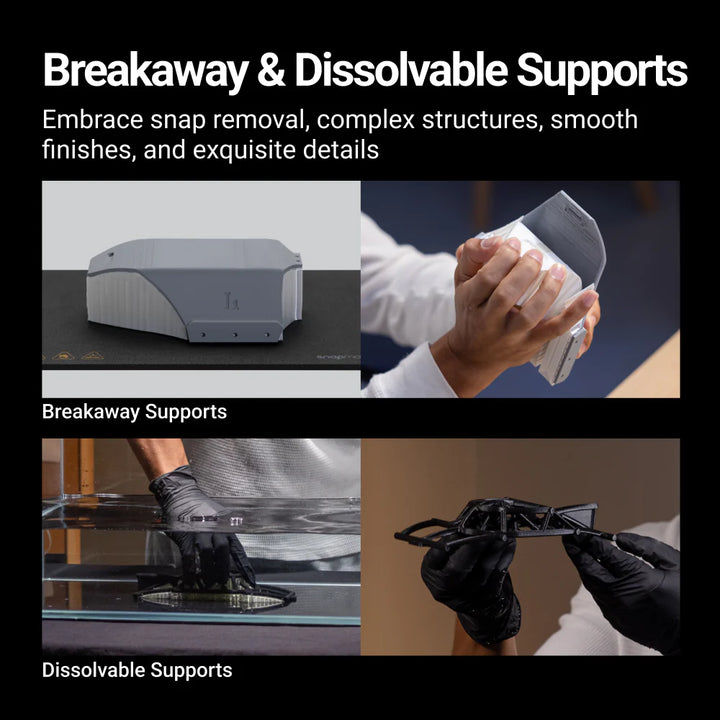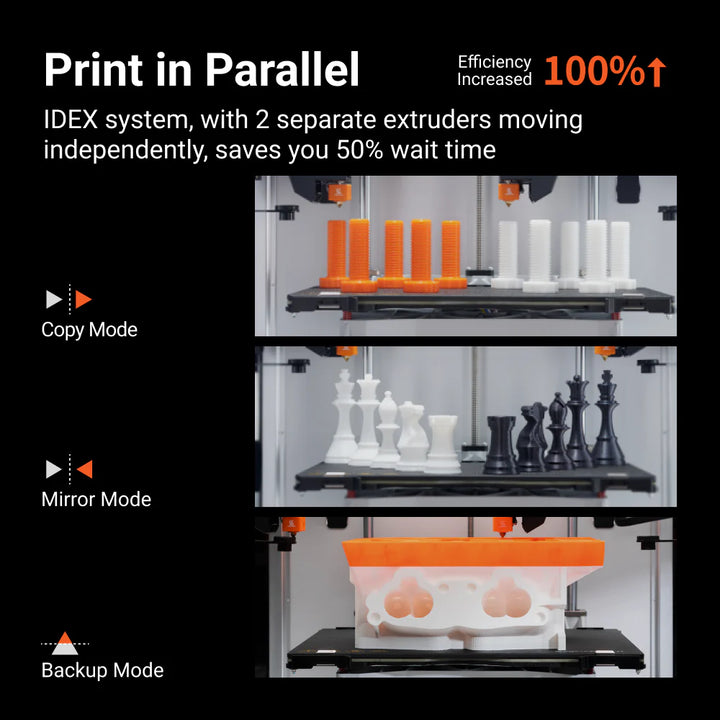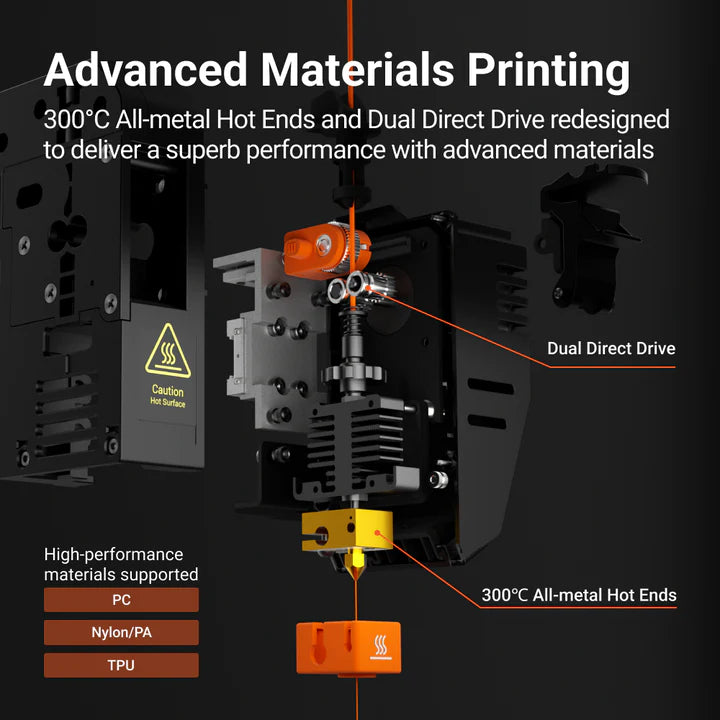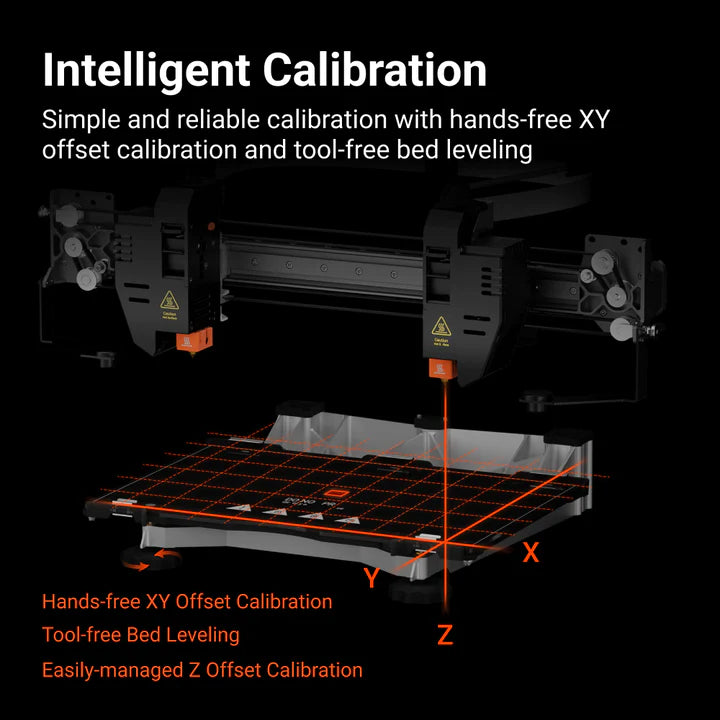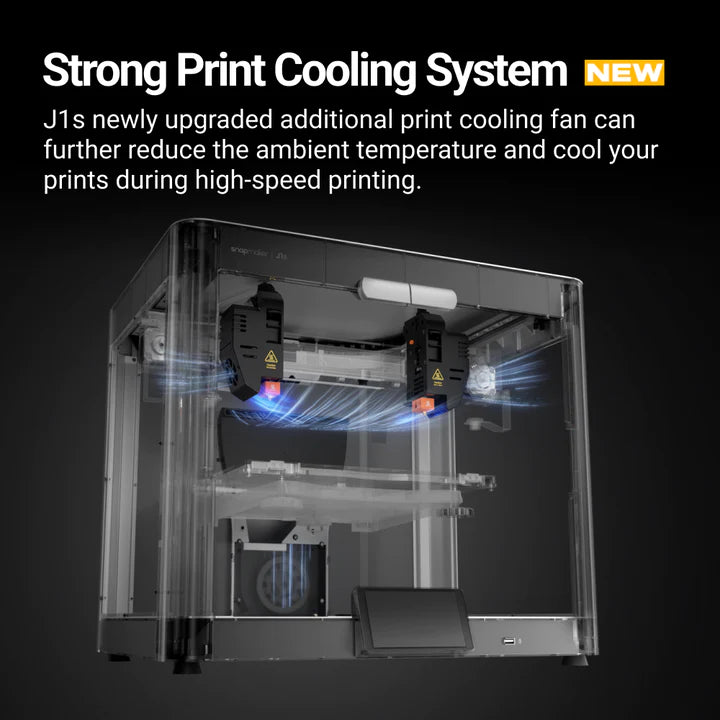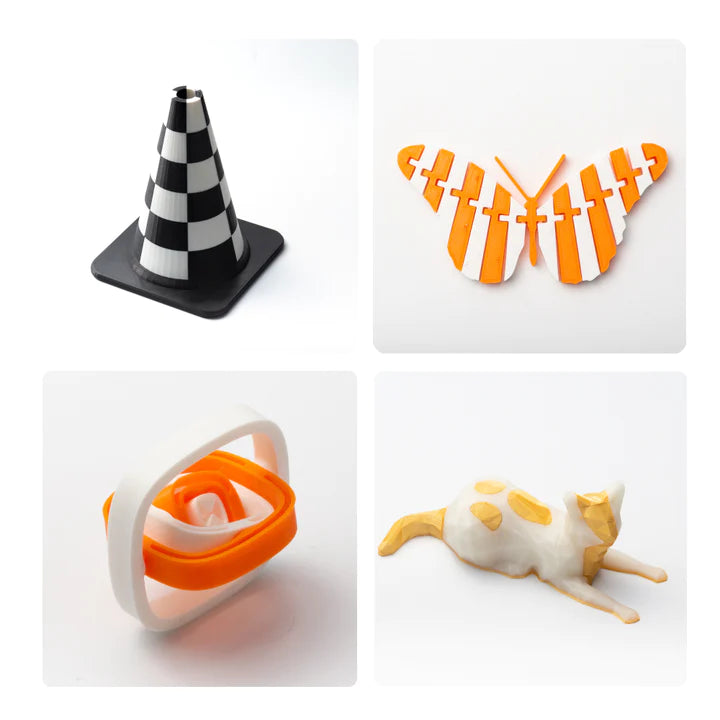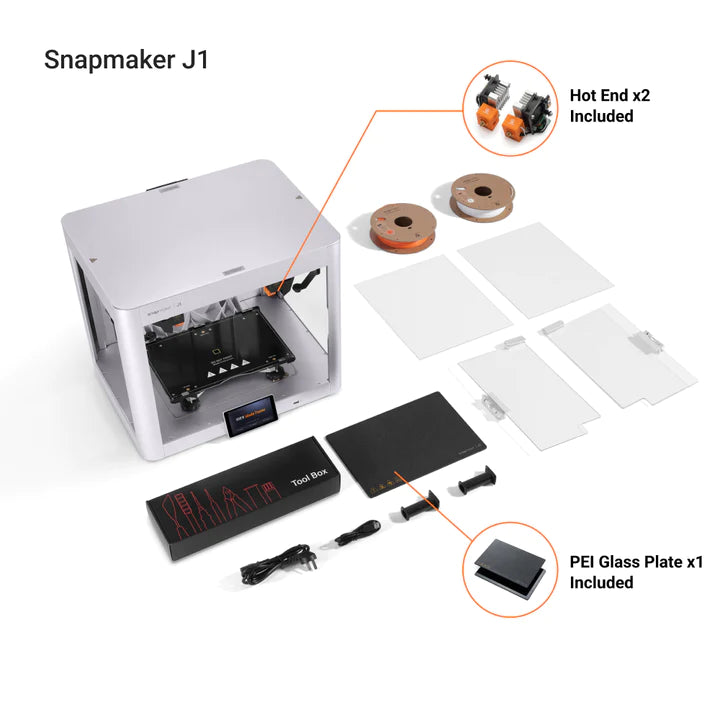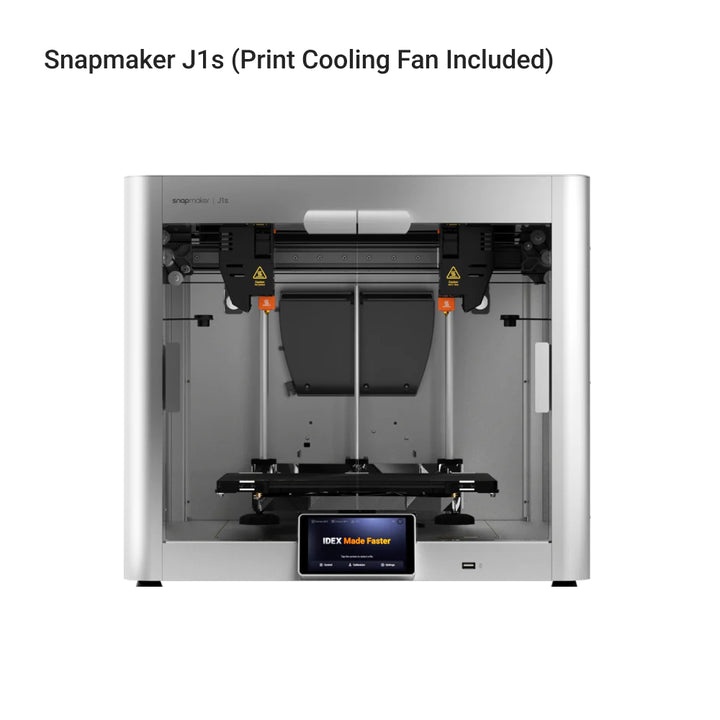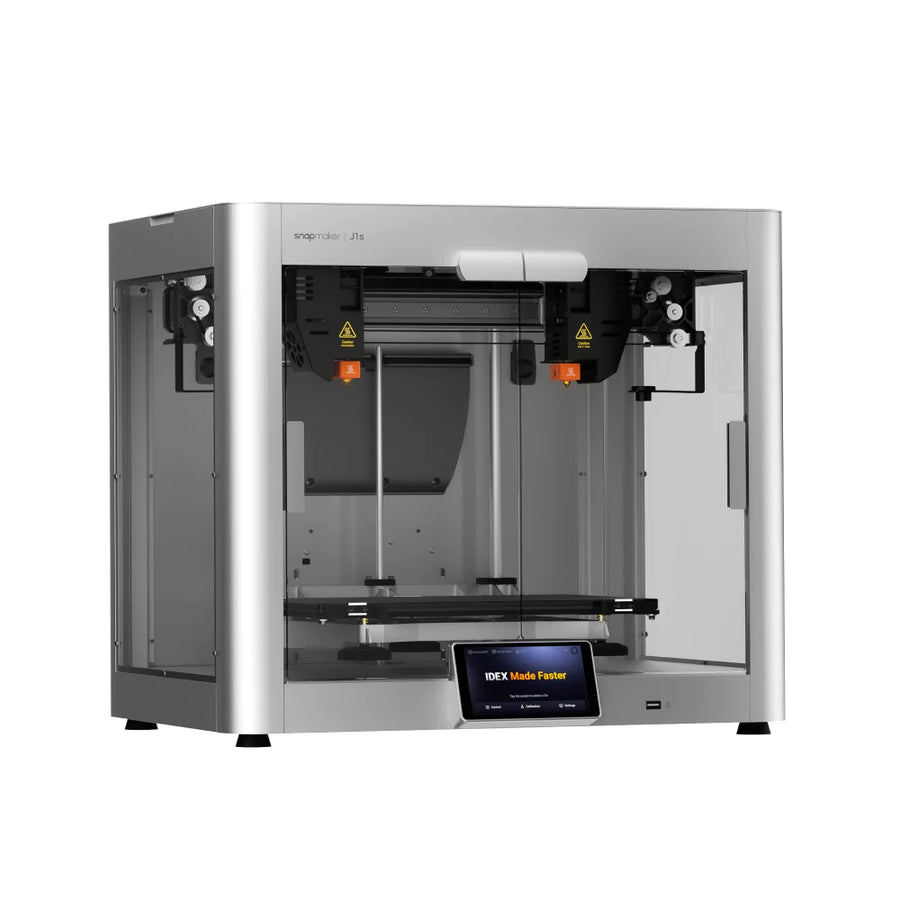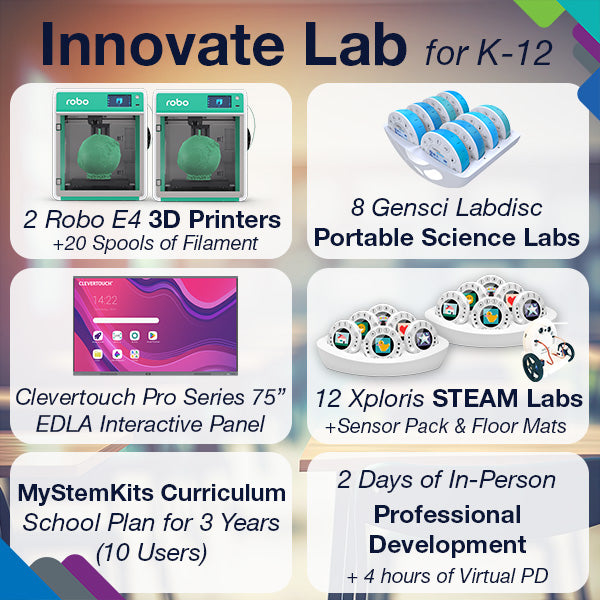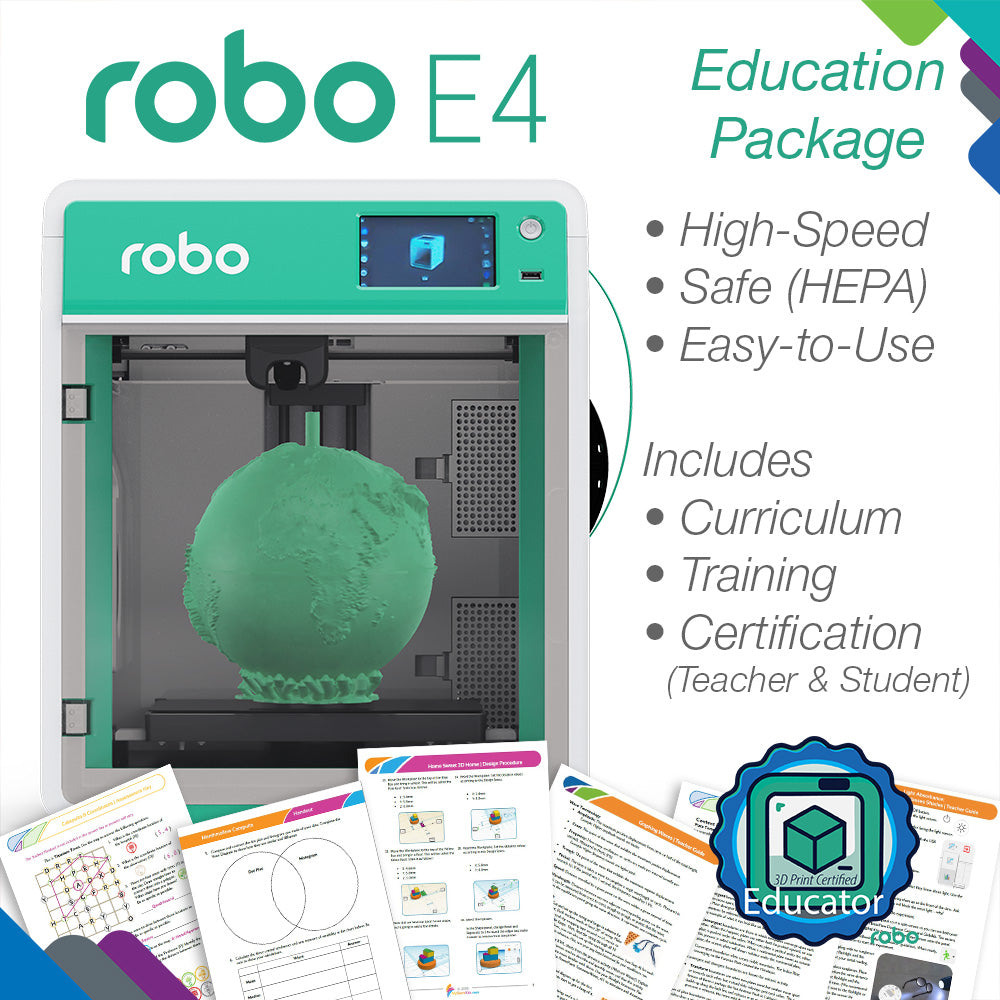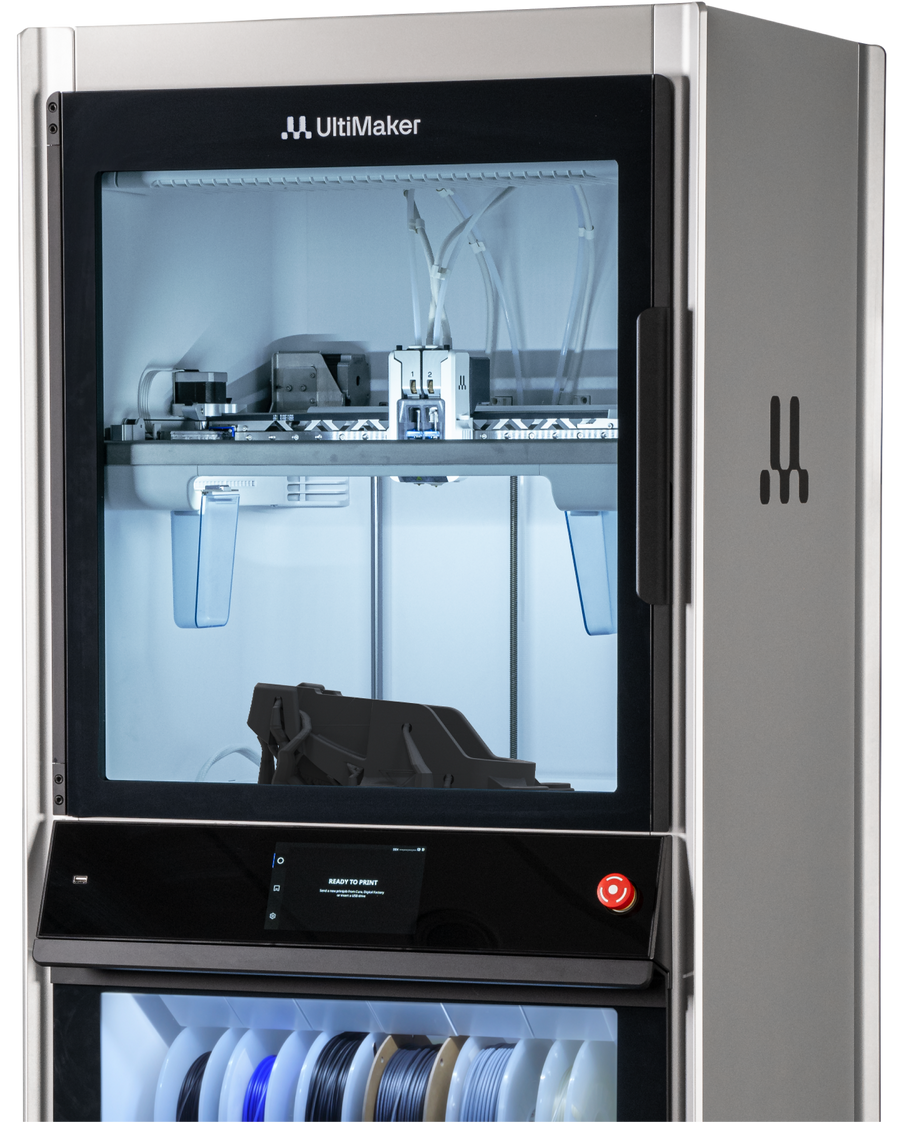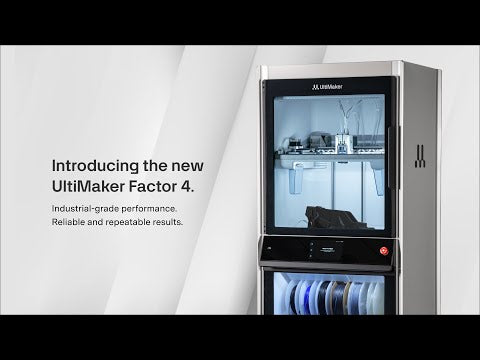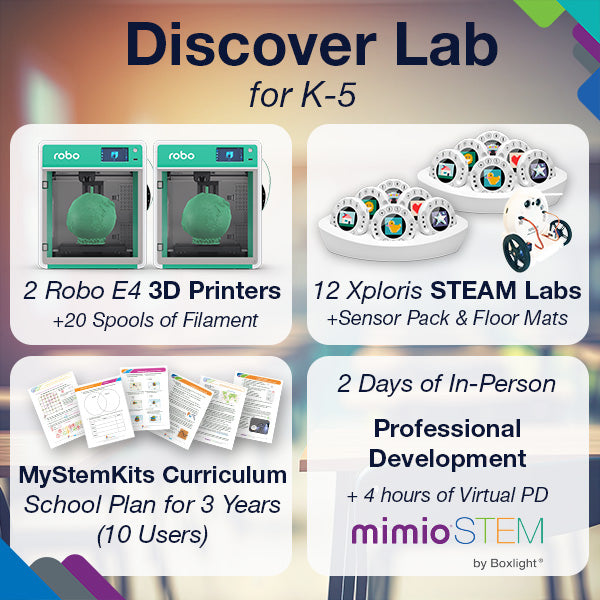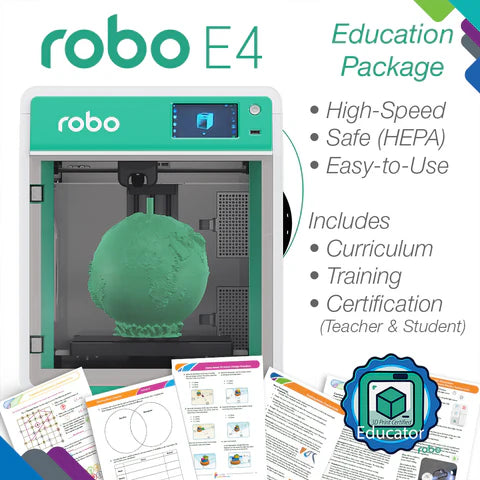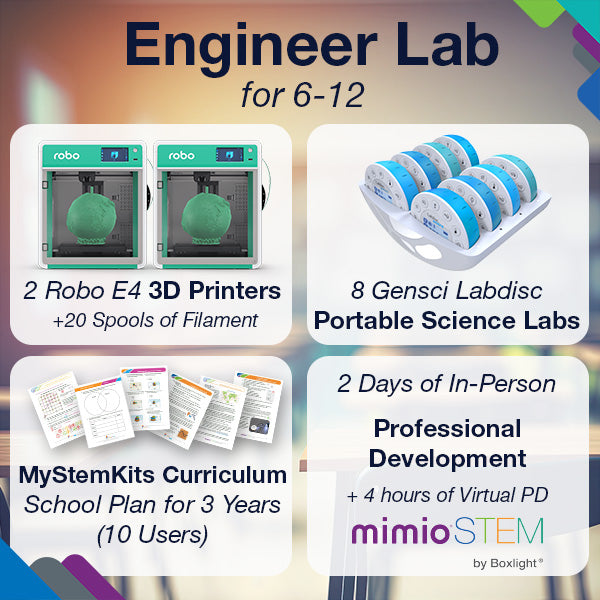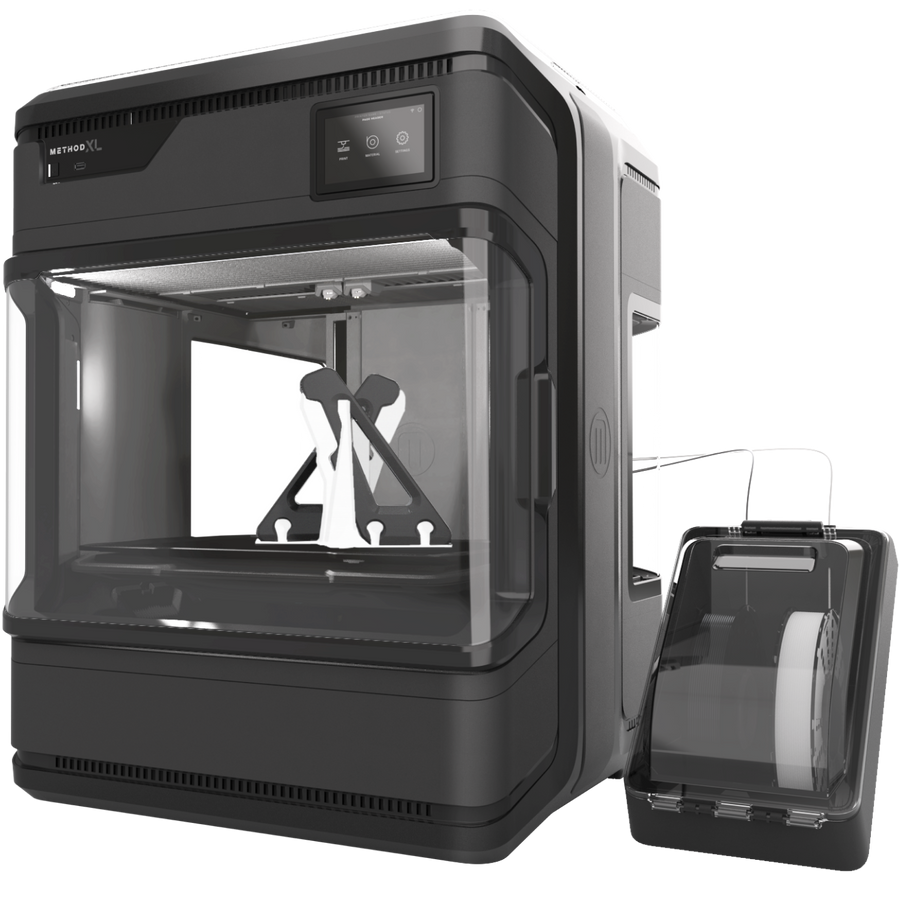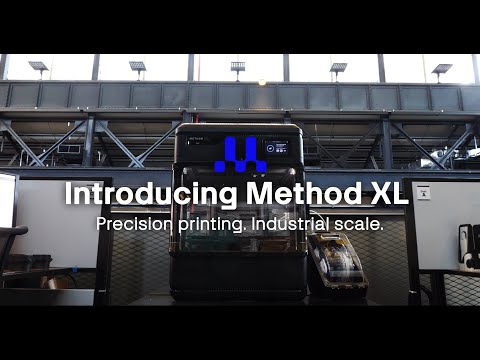Snapmaker J1s High Speed Printer
- Grades: 9+
- Number of Students: NA
- Number of Lessons: NA
- Contact Hours: NA
Highlights:
Snapmaker J1s 3D Printer features independent dual extruder (IDEX), ultra-fast print speed, and vibration compensation. With cast and machined parts, linear rails, intuitive software, and user-centered designs, J1 models are also refined and solid multi-material 3d printers.
- The J1s is equipped with the additional Print Cooling Fan. You won't need to remove the top panel to print PLA.
- In the package of J1s, Snapmaker replaced the white PLA with Breakaway Support for PLA so that you can try support printing right away.
- Snapmaker also pre-installed the doors and side panels for you, making it even easier to start right off.
Main Features:
- Breakaway supports and dissolvable supports for effortless removal
- Up to 10,000 mm/s² acceleration and up to 350 mm/s printing speed
- Copy Mode and Mirror Mode that double productivity
- 300°C hot ends & 100°C heated bed
- Print volume 300 × 200 × 200 mm³
- Easy-swap hot ends with multi-diameters
- Double-sided PEI Glass Plate
- 5-inch Intuitive Touchscreen
- Built-in nozzle wipers
- Direct drive 3D printer
Vibration Compensation
J1s brings you a top-of-class printing speed of 350 mm/s while ensuring a high resolution of prints. It is made possible by the optimization of the vibration compensation technology. This technology reduces the vibrations caused by high-speed movements, minimizing ringing to enhance print quality. With the maximum acceleration of 10,000 mm/s², you can realize small models packed with details with efficiency.
Seamless Extruders Switching
During dual extrusion printing, the non-working extruder preheats while on standby, and starts printing right after the working extruder leaves, significantly reducing your wait time.
Cornering Optimization
By analyzing the extruders' moving directions ahead of time, J1s is able to prevent problems like corner bulge, delivering better print quality at corners.
One-piece Die Casting
The body of J1s comprises an upper frame and a base made by one-piece die casting, and four aluminum alloy bars. Making the body with just a few highly integrated parts—an approach long adopted by the automotive industry—facilitates precision assembly.
J1s is so rigid and reliable with minimal wobble and deformation possible that you can print large projects one after another for a long time and get all prints of uncompromising quality.
High-precision Linear Rails
The industrial-grade linear rails are made by CNC grinding at the micron level, ensuring smooth and steady movements. A significant rise in precision, rigidity, and durability for you to savor a fast, accurate, and steady making experience.
Aluminum Alloy Frame
J1s inherits Snapmaker's iconic all-metal design which users highly value for its rigidity and durability. It provides better heat dissipation with the main board and power supply spread out on the base and aluminum alloy as its main material. All electronic components well oiled, at your command.
Strong Print Cooling System
J1s has a strong print cooling system, comprising print cooling fans not only under the nozzles but also at the back panel. With a narrow fan duct blasting a wide area with air, the print cooling fan at the back can further cool your prints during high speed printing and lower the ambient temperature when printing materials like PLA.
Infinite Possibilities with IDEX
Compared with a multi-material unit, IDEX dual-material printing requires less time in filament changing and creates less waste. Plus, IDEX offers the cleanest two-extruder solution that prevents cross-contamination. It creates a clean interface between two materials, embracing hassle-free removal and avoiding stains and weird blending along the seam.
Snap Removal, Smooth Finishes
Building and removing support can look like rocket science sometimes, but we've done the math for you–steady support, clean interface, effortless removal, and minimal post-processing needed to maintain high dimensional accuracy.
See your model as it is, no less, no more.
Breakaway Support
Breakaway filament offers the same support as normal materials but is much easier to remove without the need for further post-processing.
Dissolvable Support
J1s supports PVA and other dissolvable materials. Soak the print, and the supports dissolve, leading to a smooth surface and excellent dimensional accuracy. When you are looking for complex geometry, hollow structures, and exquisite details, this is for you.
1 + 1 > 2
Dual-material Prints. In one print, you make the most of two sets of properties. Combine the strength of nylon with the flexibility of TPU for functional parts that can stand daily wear and tear impressively. Print also multi-part objects as a whole. With no assembly, the object attains stronger interconnections, making it less prone to impairment.
Print in Parallel
Halve your wait time, double your productivity. IDEX is the only extrusion system with two separate extruders moving independently on the X-axis, enabling you to run two prints simultaneously.
Backup Mode
Under Backup Mode, you print with one extruder while the other stands by. If the working extruder bumps into a hiccup, the stand-by one would take over the job seamlessly and still deliver a fabulous print to you.
300°C Hot Ends
300°C maximum nozzle temperature comes in handy when you print with high-temperature filaments, like nylon, reinforced nylon, and PC. With silicone hot end socks preventing heat loss, filaments melting and heating up are much faster. Anti-clogging designs make the flow as smooth as possible.
Dual Direct Drive
Excellent extrusion accuracy that aids in the extrusion of flexible filaments, along with the high responsiveness of dual direct drives to make deposition faster, smoother, and more accurately controlled. It is built in with a filament sensor to inform you and pause the print job in the case of filament runout, nozzle clogging, and other abnormalities that fail filament loading.
Compact Extrusion Path
The compact extrusion path of a unique design allows you to print seamlessly with TPU and many other flexible materials.
Enclosed Space
It provides stable ambient conditions to facilitate the consistently reliable performance of high-temperature materials. For instance, it keeps ABS and many other materials from warping.
TPU
Flexible and liable to under-extrusion, and therefore requires accurate control of extrusion and heat dissipation.
Nylon/PA
Including nylon, PA-CF (Polyamide-Carbon Fiber) and PA-GF (Polyamide-Glass Fiber). Tough and wear-resistant, but require strict conditions of printing temperature and nozzle hardness.
PC
Displays high heat resistance and excellent durability. Prone to warping and shrinkage, thus requires stable ambient conditions, best provided by an enclosed space.
Hands-free XY Offset Calibration
When the two hot ends touch the square opening on the heated bed, it sends out electronic signals to suggest their exact locations, and J1s calculates the offsets between them. J1s then auto-compensates the offsets during printing to ensure perfect XY alignment that avoids layer shifting and improves the success rate of dual-material prints.
It takes away the long learning curve and saves you from scrutinizing through an awful lot of lines. Tap start, and lay back for elevated precision.
Tool-free Bed Leveling
A level print bed lays the foundation for successful 3D prints, but the bed leveling of IDEX printers can be very time-consuming.
Using a PEI glass plate of high flatness, J1s can downsize from a 3 × 3 (9 points) or 4 × 4 (16 points) leveling to a 3-point one with no compromise on levelness and downtime dropped by 70–80%[5].
Turn the leveling wheel as guided on the touchscreen, and the bed is leveled for tip-top first-layer adhesion.
Easily-managed Z Offset Calibration
Using electrical conduction, J1s can calculate the distances between the hot ends and the heated bed. Thus, we were able to cut the step of moving the calibration card back and forth while adjusting the Z offset. Simply turn the thumb wheel as guided on the touchscreen and you are now the Z offset calibration guru!
What’s Included:
- Snapmaker J1s 3D Printer × 1
- Print Cooling Fan × 1
- PEI Glass Plate × 1
- Orange PLA Filament × 1
- Breakaway Support Filament × 1
- Power Cable × 1
- USB-B Cable × 1
- Filament Holder × 1
- Diagonal Pliers × 1
- Tweezers × 1
- USB Flash Drive × 1
- Wire Brush × 1
- Wiping Cloth × 1
- Palette Knife × 1
- Calibration Card × 1
- Quick Start Guide × 1
- Safety Guidelines × 1
- Cable Clip × 1
- M3 × 10 Screw × 8
- 5.5 mm Wrench × 1
- H3.0 Hex Key × 1
- H2.5 Hex Key × 1
- H2.0 Hex Key × 1
- H1.5 Hex Key × 1
- Hot End Sock × 2
Technology Requirements/Specifications:
Printing Properties- Fused Filament Fabrication (FFF)
- Independent Dual Extruders (IDEX)
- Default Mode
- Backup Mode
- Copy Mode
- Mirror Mode
- Default Mode & Backup Mode: 300 mm × 200 mm × 200 mm
- Copy Mode: 160 mm × 200 mm × 200 mm
- Mirror Mode: 150 mm × 200 mm × 200 mm
- 0.05 mm–0.3 mm
- PEI glass plate
- 100°C
- 0.4 mm (included)
- 0.2 mm, 0.6 mm, 0.8 mm, Hardened (sold separately)
- 300°C
- 1.75 mm
- PLA
- ABS
- HIPS
- PC
- TPU (Hardness > 90 Shore A)
- TPE
- PETG
- ASA
- PP
- PVA
- PA
- PA-GF
- PA-CF
- Wi-Fi
- USB cable
- USB flash drive
- < 50 dBA
- 539 mm × 401 mm × 464 mm
- 22 kg
- Size: 5 in.
- OS: Android
- Resolution: 1280 × 720 pixels
- 1 GB RAM, 8 GB eMMC
- ± 0.03 mm (X/Y)
- ± 0.02 mm (Z)
- Over 10 Years
- Temperature: 10ºC–35ºC
- Relative Humidity: 10%–90% (non-condensing)
- Temperature: -20ºC–55ºC
- Relative Humidity: 10%–90% (non-condensing)
- Rated Voltage: AC 100 V–240 V, 50 Hz/60 Hz
- Rated Current: 4.4 A Max.
- DC 24 V, 400 W Max.
- Luban (third-party software supported)
- Windows
- macOS
- STL
- OBJ
- 3MF
- Gcode


